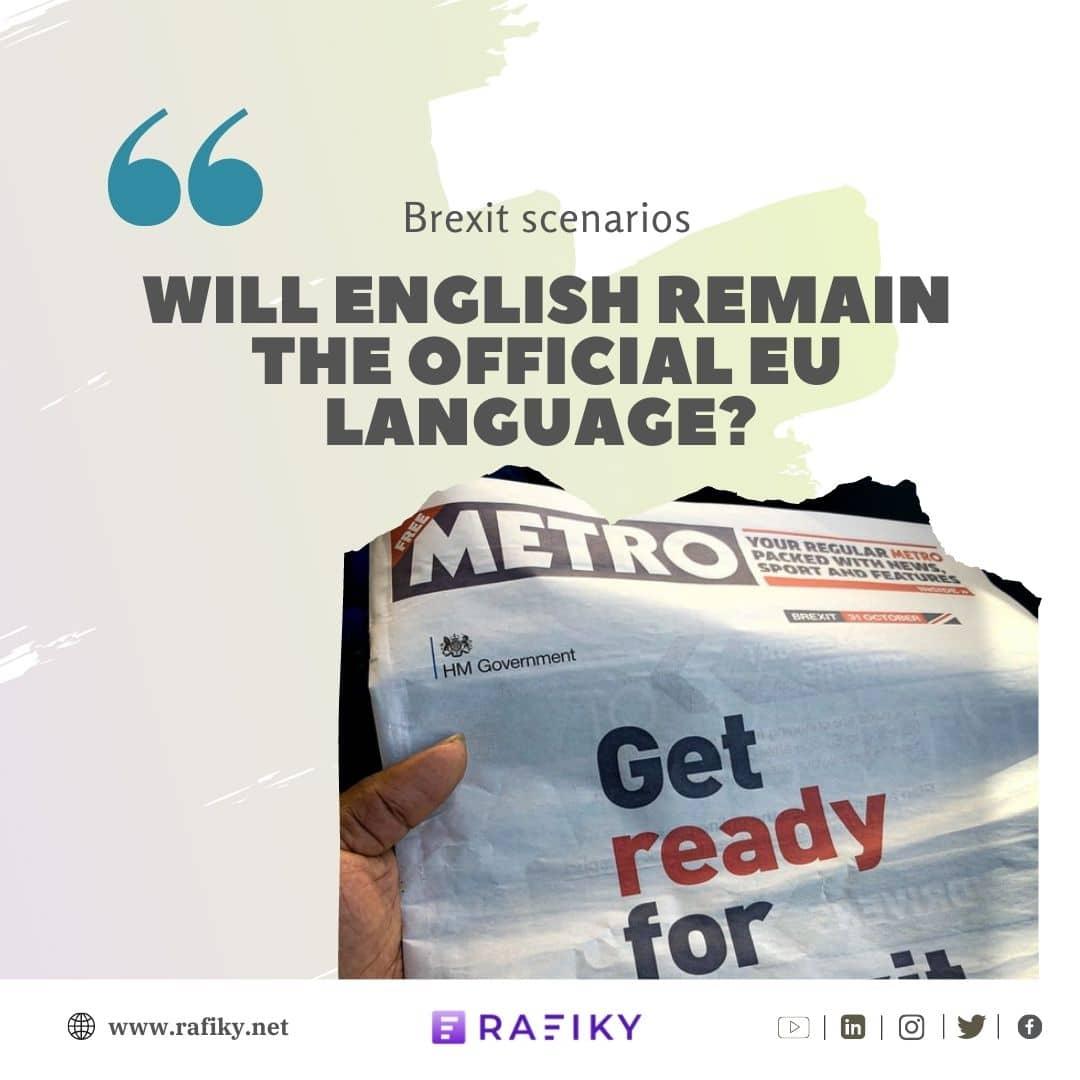
After Brexit, we have been discussing what effects this divorce from the EU would have in a geopolitical sense, what about the trade relations and the official EU language. Will English still remain the official EU language? Or will there be a slow process of settling a new language?
By now, English has been consolidated at the European level as a lingua franca since 1973, used in the economic and commercial fields – sometimes even diplomatic, along with French – for all international agreements between the various EU member countries.
Forbes described English as an irreplaceable language, “an international means of communication that does not belong to any country“. According to Eurostat data collected in 2018 – the last year of which we have official data – English is the foreign language most studied by students (86%) of upper secondary education in the European Union and the best known in 19 of the 27 member countries. The Anglo-Saxon language is followed by French (around 19%), German and Spanish (both around 18%).
Also according to these data, in all EU member states over 65% of students study English as a foreign language. This means how over the years the English language has increasingly acquired the role of international master key in the world of education and access to the world of work.
Yet according to the latest statements released by President Macron, Paris would like to make Brexit an opportunity to give French the way to compete with the Anglo-Saxon language for the role of official language and vehicular language worldwide. Indeed, the French presidency has ordered that, by 2022, both working documents must be issued in French and high-level meetings must be held in French as well.
Although English is practical and spread all over the EU, the French nation has caught in this scenario a way to promote the various official languages of the member states and multilingualism. Without its mother country of English within the EU, English is no longer the official language in any of the remaining member countries: Ireland recognizes Irish as an official language, while Malta recognizes Maltese.
Without forgetting that British English, now out of the spotlight, could undergo a series of contaminations and variations. With British officials in the government and the Brussels parliament close to retirement, the gap between British English and so-called Euro-English, or broken English, could grow more and more. According to the French secretary of state Clément Beaune, continuing to use broken English even after Brexit would be difficult to understand and certainly less logical than going back to using one’s own national language.
There are 24 official languages in the EU, while 27 member states. This disparity is justified by the fact that some nations speak the same language, such as Germany and Austria or France and Belgium. However, the working languages in the EU are English, German and French – the most widely used languages for demographic and economic factors. To date, international meetings and events do not often involve the use of German or French. There are few, if any, occasions in which a French or German interpreter is consulted in order to provide simultaneous interpreting services for a high-level event. At least for now.
Some have speculated on a change of scenery. An English interpreter, currently often present at international events or conferences, could gradually be replaced by a French interpreter. What would therefore change would be the methods of communication at the European level.
All working documents or all materials and documents relating to economic and legal matters should be drawn up in the new official language of the EU. The French language would be the most eligible for candidates, so much so that some already speak of Euro-French. But although it came second in the list of the most widely taught and widely used languages in the EU, unfortunately, its knowledge is still quite limited, especially when compared with the English language. What we could see would be a boom in requests for professionals for translation and interpreting in French.
Companies are not so used to working by using French, not even on the upper floors. The alternatives would therefore be to learn a new language from scratch or to occasionally hire figures to act as a link for their international meetings. As fascinating as learning a new language and providing training courses for all the staff can be, this would mean pressing, or rather stumbling, in logistical and economic terms.
Finally, whether or not there is a change of course in the linguistic scenario in the EU or of the official EU language, the simplest and safest solution is always to rely on professionals in the industry and language experts. Therefore, the intervention of an English interpreter, or of a French interpreter eventually, can make a difference in multilingual communication.
Certainly, Brexit has made us reflect on the importance of multilingualism, of a multicultural, multilingual and multiethnic community, ready to defend the culture and take the side of diversity. A 2008 quote from Umberto Eco reads: “the language of Europe is translation“. We can always rely on this linguistic transposition, this exchange and this interaction to make communication fluid.
Rafiky Press Office